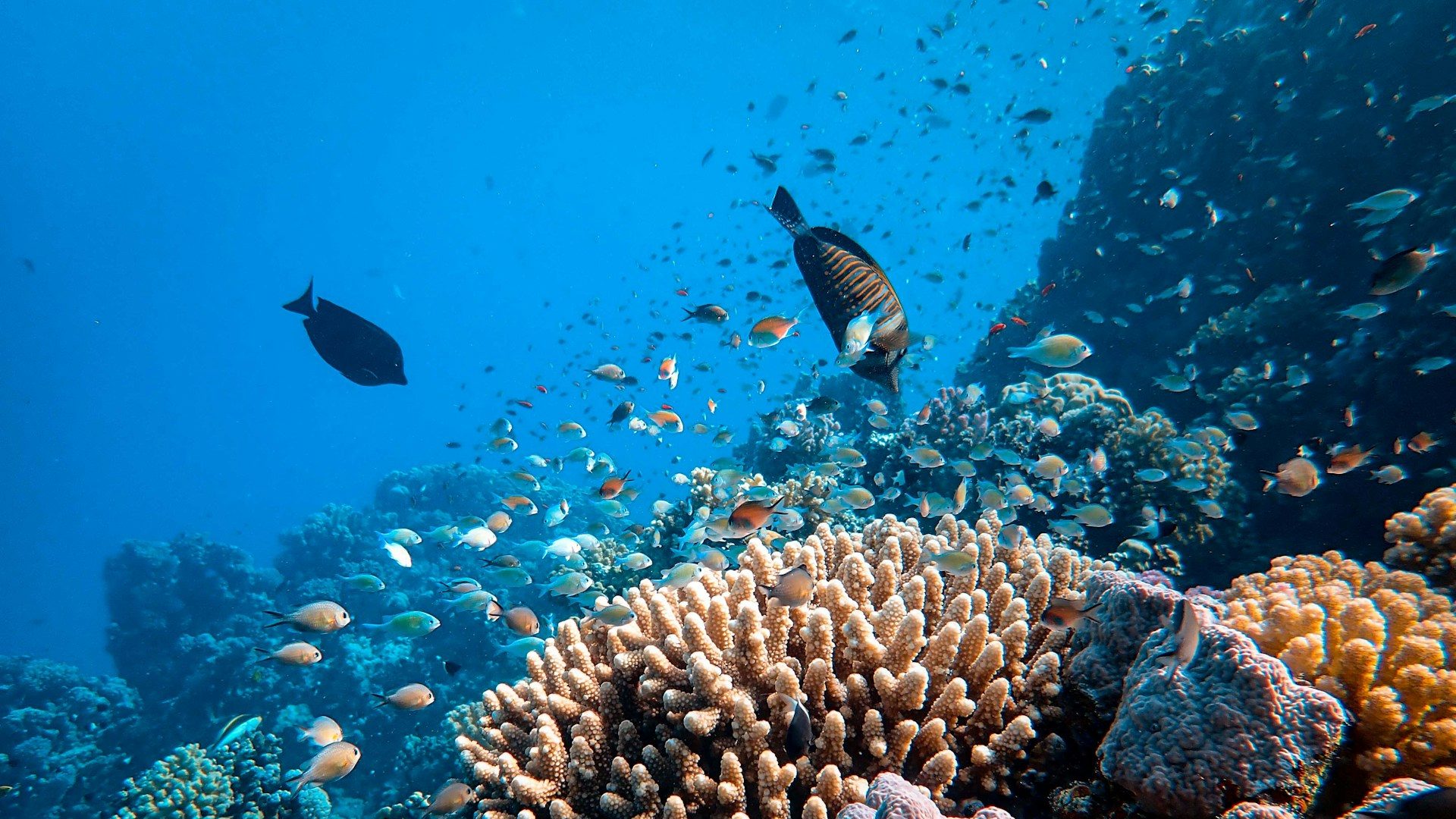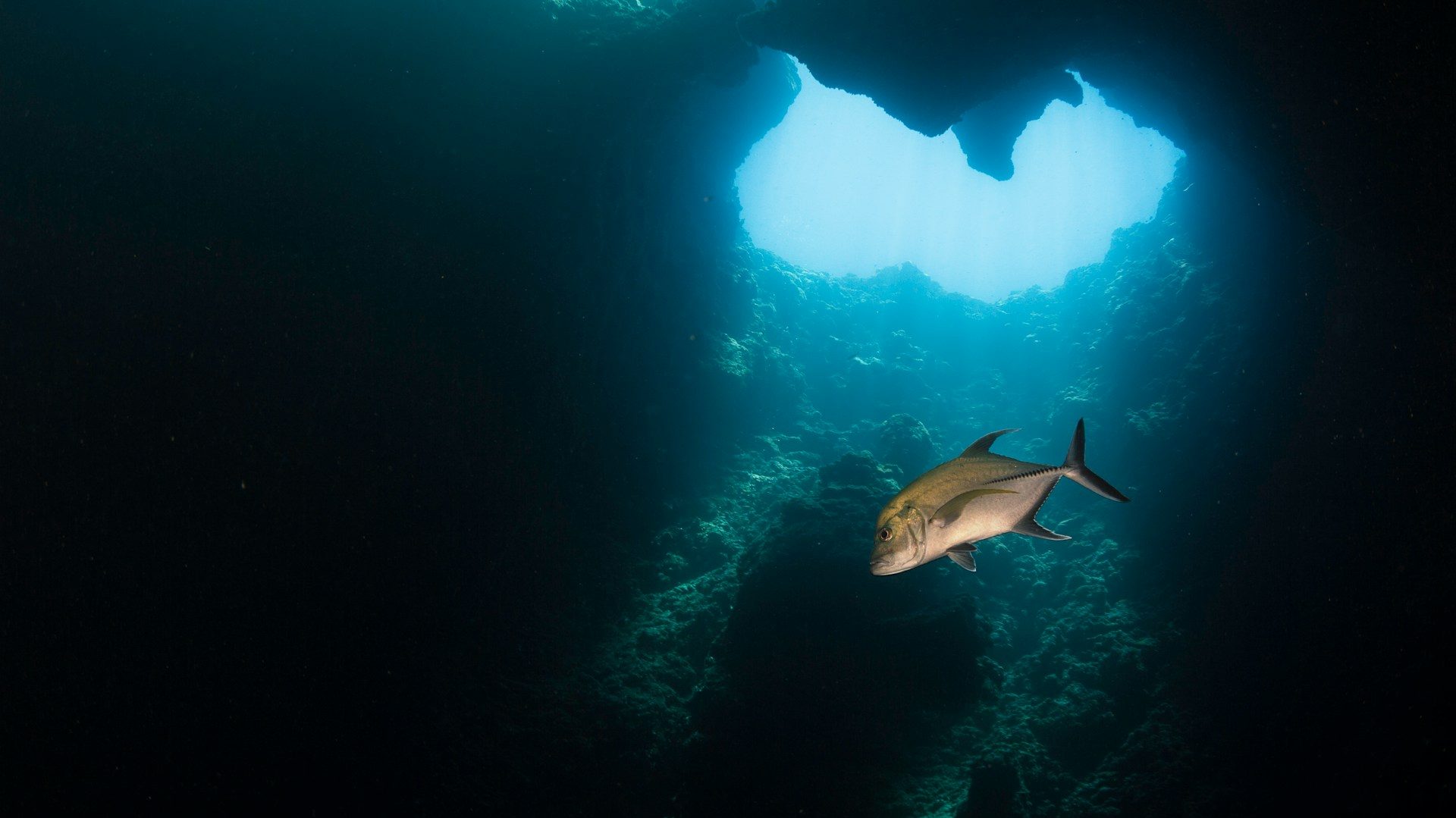BY KATHLYN TAN, RUMAH GROUP
Despite unpromising progress towards protecting 30% of the world’s land and seas by 2030, APC member Kathlyn Tan shares her hopes as youth, innovators, philanthropists, and government leaders are standing up to take action behind the scenes.

The global conference circuit is in full swing. In April, international delegates convened for not one, but two ocean conferences: the 2024 UN Ocean Decade Conference in Barcelona and the 9th Our Ocean Conference (OOC) in Athens. Thomas and I had the opportunity to attend OOC for the first time, where our agenda included witnessing youth mobilisation in action, attending plenaries, supporting an innovation competition, understanding where global ocean philanthropy and investment are headed, and meeting with both existing and prospective partners. Amidst a public transport strike in Athens, over 3,500 delegates from 130 countries and international organisations attended — spanning governments, the private sector, NGOs and philanthropists. However, Southeast Asian representation was meagre, both onstage and within the delegation.
Known for its commitments, this year’s OOC reportedly saw its delegates make 469 new pledges worth more than USD 11.3 billion, ranging from establishing marine protected areas and combating illegal fishing; to green shipping and expanding scientific collaborations. Whilst these are without a doubt positive, we were cautioned at closed-door meetings that implementation will be a significant hurdle.
So what did I learn from the OOC? Sifting through the honeyed statements, here are my 3 key takeaways from the conference, particularly as a funder interested in protecting ecosystems, species, and the communities that depend on them:
- With 2030 just around the corner, we’re nowhere close to meeting the global goal of protecting 30% of the world’s land and seas by 2030. According to Enric Sala, National Geographic Explorer-in-Residence, we’ll need 200 more giant Marine Protected Areas (MPAs) and 100,000 coastal Marine Protected Areas (MPAs) to get there. In other words, more than 40 new MPAs will need to be created everyday. Moreover, majority of MPAs today still allow extractive activities, which is why Greece’s recent announcement to ban bottom trawling in marine parks is so significant. Conservationists hope the move will create a “domino effect” for other EU countries to do the same and so far, Spain has followed suit. When it comes to Southeast Asia’s seas, less than 4% currently fall under formal protection, which lags behind the global average of about 8%.
- We won’t be able to reach 30×30 without a significant portion of the high seas, and we need to fast track the first generation of high seas marine protected areas as soon as possible. This is why ratifying The High Seas Treaty (also known as the Agreement on Biodiversity Beyond National Jurisdiction or ‘BBNJ’) is critical. The BBNJ sets up a procedure to establish large-scale MPAs in the high seas, and puts in place the sharing of benefits from marine genetic resources, clear rules for environmental impact assessments, capacity-building, and the transfer of marine technology. Despite BBNJ having been adopted by the United Nations in 2023 and signed by more than 80 countries, only Chile and Palau have ratified the treaty to date — we need at least 60 countries to ratify the treaty before it can enter into force.
- Deep-sea mining is rapidly becoming an urgent threat. From the countries of Palau and Costa Rica; to France, Vanuatu, Chile, Spain, Germany and Ireland — dignitaries took the stage one by one at the conference to call on more countries to join the movement to halt deep-sea mining. This call includes sending country representatives to attend the next Session of the International Seabed Authority (ISA), an intergovernmental body established under the United Nations Convention on the Law of the Sea (UNCLOS) that holds the power to issue exploration and exploitation contracts. To date, 25 countries have shown leadership in joining the wave of resistance, and these countries and their positions can be found here. Whilst not a single Southeast Asian country appears on this list, hopefully this will soon change as momentum builds and the Deep Sea Conservation Coalition gains increasing strength.

As disheartening as the scale of the problem is, it was remarkable to see how philanthropy is evident in every aspect of the work being done to advance ocean-positive initiatives! From building political will, to enabling cross-border collaboration, to improving diversity at the table — philanthropy is working vigorously behind the scenes to fund action on critical levers to get the world to where we need to be.
Sitting in on an international funder’s collaborative board meeting hosted by Oceans 5, I had the opportunity to see how global ocean funders (predominantly US-based) are joining forces, and how truly generous they are with knowledge exchange. From sharing ideas and strategies, to organising learning and co-funding opportunities, these ocean funders are galvanising in response to urgent needs. What felt missing, if I daresay, were holistic solutions fit for our region’s coastal communities, and the myriad of developmental challenges that exist alongside environmental ones.
“From building political will, to enabling cross-border collaboration, to improving diversity at the table —philanthropy is evident in every aspect of the work being done to advance ocean-positive initiatives.”
As Secretary John Kerry has so eloquently stated over the years, “You can’t protect the oceans without solving climate change, and you can’t solve climate change without protecting the oceans.” With the 2030 deadline looming and the heartbreak of the global coral bleaching event taking place right now, it is clear that urgent action is needed not only to halt and reverse the damage done to our natural ecosystems, but also to empower local communities to adapt to climate change through capacity building and alternative livelihoods. If you’re interested in connecting with other ocean funders in the region, please reach out. I’d be thrilled to connect and explore how we can contribute to the region together.
Kathlyn Tan is Director at the Rumah Group. Having developed a deep love and respect for the ocean, Kathlyn is passionate about business sustainability and ocean protection.
